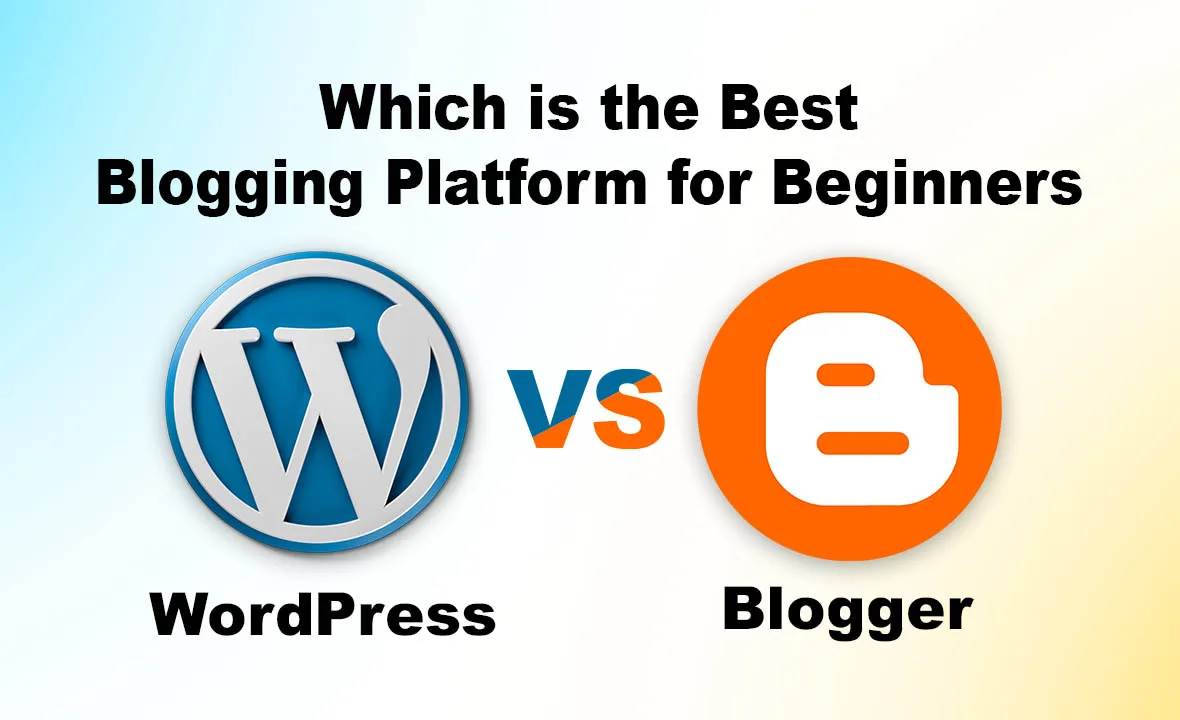Search Engine Optimization (SEO)
Search Engine Optimization (SEO) is the process of optimizing a website to rank higher in search engine results pages (SERPs) and attract organic traffic. This is achieved by improving the website’s relevance and credibility to search engines and users. SEO involves various technical and creative elements, including keyword research, content creation, link building, and website structure optimization. Effective SEO requires a thorough understanding of how search engines work and the latest industry best practices. It also requires consistent effort and patience as it can take time for a website to see significant improvements in search rankings. By ranking higher in SERPs, businesses can increase their visibility, attract more qualified leads, and ultimately drive more sales. SEO is an ongoing process, and companies must stay up-to-date with changes in search algorithms and industry trends to remain competitive and achieve their marketing goals.

What is SEO?
SEO stands for Search Engine Optimization, which is the process of optimizing a website to rank higher in search engine results pages (SERPs) and attract organic traffic. This is achieved by improving the website’s relevance and credibility to search engines and users through various techniques such as keyword research, content creation, link building, and website structure optimization. The goal of SEO is to increase a website’s visibility and drive more organic, qualified traffic to the site.
How does SEO work?
SEO works by making changes to a website and its content to make it more appealing to search engines and users. The process involves several technical and creative elements, including:
- Keyword research: Finding keywords related to a business and its products or services that people search for in search engines.
- On-page optimization: Making changes to the website’s content, such as adding keywords to headlines and body text, to make it more relevant and optimized for search engines.
- Off-page optimization: Building backlinks to a website from other reputable websites to increase its credibility and authority.
- Website structure optimization: Making changes to the website’s architecture and navigation to make it easier for search engines to crawl and understand its content.
The overall goal of SEO is to improve a website’s ranking in search results for relevant keywords, which in turn will drive more organic, qualified traffic to the site. However, SEO is an ongoing process, and a website must continually make changes and improvements to maintain or improve its rankings.
Why is SEO important for marketing?
SEO is important for marketing because it helps businesses reach a larger, more targeted audience online. By ranking higher in search engine results pages (SERPs), businesses can increase their visibility and attract more organic, qualified traffic to their websites. Some of the key benefits of SEO for marketing include:
- Increased brand visibility and credibility: By appearing at the top of search results, businesses establish themselves as credible and authoritative in their industry.
- Targeted traffic: SEO allows businesses to reach potential customers who are actively searching for products or services related to their business.
- Cost-effective: Unlike paid advertising, SEO is a long-term, organic strategy that can drive sustained traffic and leads to a website at a relatively low cost.
- Measurable results: SEO provides measurable results through analytics and tracking, allowing businesses to see the impact of their efforts and make data-driven decisions for future optimization.
Overall, SEO is a crucial component of a comprehensive digital marketing strategy, as it helps businesses reach their target audience and achieve their marketing goals.
Why SEO focuses on Google?
SEO focuses on Google because it is currently the dominant search engine, with a market share of over 90% in many countries. As a result, optimizing for Google is essential for businesses that want to reach a large, diverse audience online. Google’s algorithms and ranking factors are designed to provide relevant and trustworthy results to users, and businesses that follow best practices for SEO are more likely to rank higher in search results and attract more organic traffic. Furthermore, Google’s algorithm updates, such as Google Panda and Google Penguin, have had a significant impact on the way websites are ranked in search results, making it crucial for businesses to stay up-to-date with changes and developments in the search engine. In short, focusing on Google is crucial for businesses because of its dominant market share, its commitment to providing relevant results, and its impact on the way websites are ranked in search results.
Keyword Research and Selection
Keyword research and selection is a critical aspect of search engine optimization (SEO). The process involves identifying the keywords and phrases that people use when searching for products or services related to a business. By researching and selecting the right keywords, businesses can optimize their website’s content to rank higher in search results for those terms and attract more targeted, organic traffic to their site.
To conduct keyword research, businesses can use tools such as Google Keyword Planner or SEMrush to identify the keywords with the highest search volume and relevance to their business. Once the keywords are identified, businesses can use them to optimize their website’s content, such as incorporating them into headings, body text, and meta tags. However, it’s important to note that keyword optimization is just one aspect of SEO and that businesses should also focus on creating high-quality content and improving their website’s overall relevance and credibility.
Benefits of SEO
SEO, or Search Engine Optimization, offers numerous benefits for businesses looking to improve their online visibility and attract more organic, qualified traffic to their websites. Some of the key benefits of SEO include:
- Increased visibility: By ranking higher in search engine results pages (SERPs), businesses can increase their visibility and reach a larger, more targeted audience online.
- Cost-effective marketing: Unlike paid advertising, SEO is a long-term, organic strategy that can drive sustained traffic and leads to a website at a relatively low cost.
- Improved user experience: Effective SEO involves optimizing a website for both search engines and users, which can improve the overall user experience and lead to higher engagement and conversions.
- Measurable results: SEO provides measurable results through analytics and tracking, allowing businesses to see the impact of their efforts and make data-driven decisions for future optimization.
- Increased credibility and trust: By appearing at the top of search results, businesses establish themselves as credible and authoritative in their industry, which can increase trust and loyalty among their customers.
Types of SEO
There are two main types of search engine optimization (SEO): on-page SEO and off-page SEO.
- On-page SEO: On-page SEO involves optimizing individual web pages to rank higher and earn more relevant traffic in search engines. This includes optimizing the content and HTML source code of a web page, such as incorporating keywords into headings, meta tags, and body text. On-page SEO also involves optimizing the user experience and website architecture, such as using descriptive and relevant URLs, improving page speed, and ensuring the website is mobile-friendly.
- Off-page SEO: Off-page SEO refers to all the activities performed outside of a website to improve its visibility and ranking in search engines. This includes link building, social media marketing, content marketing, and influencer outreach. Off-page SEO helps to establish a website’s authority and credibility, and signals to search engines that the website is relevant and valuable to users.
Both on-page and off-page SEO are important components of a comprehensive SEO strategy, and businesses should focus on improving both to achieve their goals and reach their target audience. It’s also important to note that SEO is an ongoing process, as search engines are constantly updating their algorithms and ranking factors, and businesses need to stay up-to-date and adjust their strategy accordingly.
SEO Ranking Factors
Search engines use a complex set of algorithms to determine the relevance and credibility of a website, and ranking factors play a critical role in this process. Some of the key ranking factors that influence a website’s visibility and ranking in search engine results pages (SERPs) include:
- Content quality and relevance: High-quality, relevant, and valuable content is crucial for a website to rank well in search engines. This includes incorporating target keywords, providing in-depth information and analysis, and regularly updating content to reflect changes and developments in the industry.
- User experience: The overall user experience of a website, including page speed, mobile responsiveness, and website design, is a ranking factor that search engines use to determine the quality of a website.
- Backlink profile: The quality and quantity of links pointing to a website from other credible and relevant websites is an important ranking factor, as it signals to search engines that the website is authoritative and valuable.
- Technical SEO: Technical SEO involves optimizing a website’s underlying code and architecture to ensure it is accessible and understandable to search engines. This includes optimizing URLs, meta tags, header tags, and image alt tags, as well as ensuring the website is free of technical errors such as broken links and crawl errors.
- Social signals: Social signals, such as likes, shares, and followers, can impact a website’s visibility and ranking in search engines, as they signal to search engines that the website is popular and relevant to users.
SEO Tools
There are many tools available to help businesses improve their search engine optimization (SEO) efforts and increase their visibility in search engine results pages (SERPs). Some of the most popular and widely-used SEO tools include:
Google Search Console: A free tool provided by Google that helps website owners monitor their website’s visibility in Google search results and receive notifications of any technical issues.
Google Analytics: A free tool that provides in-depth website traffic and user behavior data, allowing businesses to track their SEO efforts and make data-driven decisions for improvement.
Ahrefs: A paid tool that provides in-depth analysis of a website’s backlink profile, keyword rankings, and competitor analysis.
SEMrush: A paid all-in-one marketing tool that offers keyword research, competitor analysis, site audit, and backlink tracking features.
Moz: A paid tool that offers a comprehensive set of SEO tools, including keyword research, backlink analysis, and site audit features.
Keyword Planner: A free tool provided by Google AdWords that helps businesses research and select target keywords for their SEO efforts.
Majestic: A paid tool that provides in-depth analysis of a website’s backlink profile, including the number and quality of links pointing to the website.
These are just a few of the many SEO tools available, and businesses should choose the tools that best meet their specific needs and goals. It’s important to note that while these tools can provide valuable insights and analysis, they should be used in conjunction with a comprehensive SEO strategy and expert knowledge, as they are only one aspect of a successful SEO effort.
How can I learn SEO best practices?
To learn SEO best practices, you can follow these steps:
- Start with understanding how search engines work and what factors they use to rank websites.
- Read the guidelines provided by search engines, such as Google’s Webmaster Guidelines.
- Read industry blogs and websites such as Moz, Search Engine Land, and Search Engine Journal to stay up to date on the latest trends and algorithms.
- Experiment with different tactics on your own website or blog to see what works best.
- Consider taking online courses or attending workshops to get a deeper understanding of SEO.
- Network with other SEO professionals to learn from their experiences and to stay up to date on the latest trends and best practices.
Remember, SEO is a continuously evolving field, so it is important to stay updated and be willing to adapt your strategies as search engines change their algorithms.
Further Learning
If you want to further your learning in SEO, here are some additional resources you can use:
Books: There are many books available on the topic of SEO, covering both the basics and advanced strategies. Some popular titles include “The Art of SEO,” “SEO 2021,” and “SEO Made Simple.”
Online Courses: Websites like Udemy, Coursera, and LinkedIn Learning offer online courses on SEO that can help you develop your skills.
Conferences and Workshops: Attending conferences and workshops can be a great way to learn from experts and network with other professionals in the industry. Some popular events include Pubcon, MozCon, and SMX.
Practical Experience: One of the best ways to learn SEO is by working on your own website or helping a friend or family member improve their website’s search engine ranking.
Join an SEO Community: Joining an SEO community, such as an online forum or Facebook group, can be a great way to learn from others and stay up to date on the latest industry trends.






